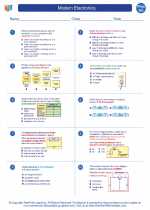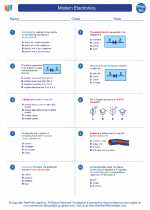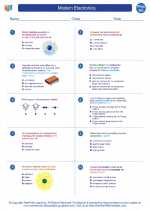Class in Physics
In physics, the term "class" can refer to a few different concepts, including:
- Classical Mechanics: In classical mechanics, "class" can refer to a set of objects or systems that share similar physical properties or behaviors. For example, we can talk about the class of all simple harmonic oscillators, or the class of all elastic collisions.
- Classical Electrodynamics: In the context of classical electrodynamics, "class" can refer to a group of physical phenomena or systems that can be described using Maxwell's equations, such as the class of electromagnetic waves or the class of charged particles in electric and magnetic fields.
- Quantum Mechanics: In quantum mechanics, a "class" can refer to a set of systems that share certain quantum properties, such as the class of all spin-1/2 particles or the class of all particles in a particular potential well.
Study Guide
When studying the concept of "class" in physics, it's important to understand the following key points:
- Properties and Behaviors: Identify and understand the common properties or behaviors that define a particular class of physical systems. For example, in classical mechanics, understanding the properties of systems that fall into the class of simple harmonic oscillators.
- Mathematical Descriptions: Be familiar with the mathematical descriptions and equations that govern the behavior of systems within a specific class. This could involve understanding the differential equations that describe the motion of objects within a certain class in classical mechanics, or the wave equations that govern the behavior of electromagnetic waves in classical electrodynamics.
- Quantum Properties: For quantum mechanics, it's important to grasp the quantum properties that define a class of systems, such as the spin, energy levels, and wave functions associated with a particular class of particles.
- Applications: Explore the practical applications and significance of understanding different classes of physical systems. This could involve discussing how knowledge of specific classes of systems is applied in engineering, technology, and other branches of physics.
[Class] Related Worksheets and Study Guides:
.◂Physics Worksheets and Study Guides High School. Modern Electronics
Worksheet/Answer key Modern Electronics
Modern Electronics  Worksheet/Answer key
Worksheet/Answer key Modern Electronics
Modern Electronics  Worksheet/Answer key
Worksheet/Answer key Modern Electronics
Modern Electronics 

 Worksheet/Answer key
Worksheet/Answer key
 Worksheet/Answer key
Worksheet/Answer key

The resources above cover the following skills:
Concepts of Physical Science (SB1, SB2, SB3, SB4)
The student demonstrates an understanding of motions, forces, their characteristics, relationships, and effects by explaining that different kinds of materials respond to electric and magnetic forces (i.e., conductors, insulators, magnetic and non-magnetic materials).